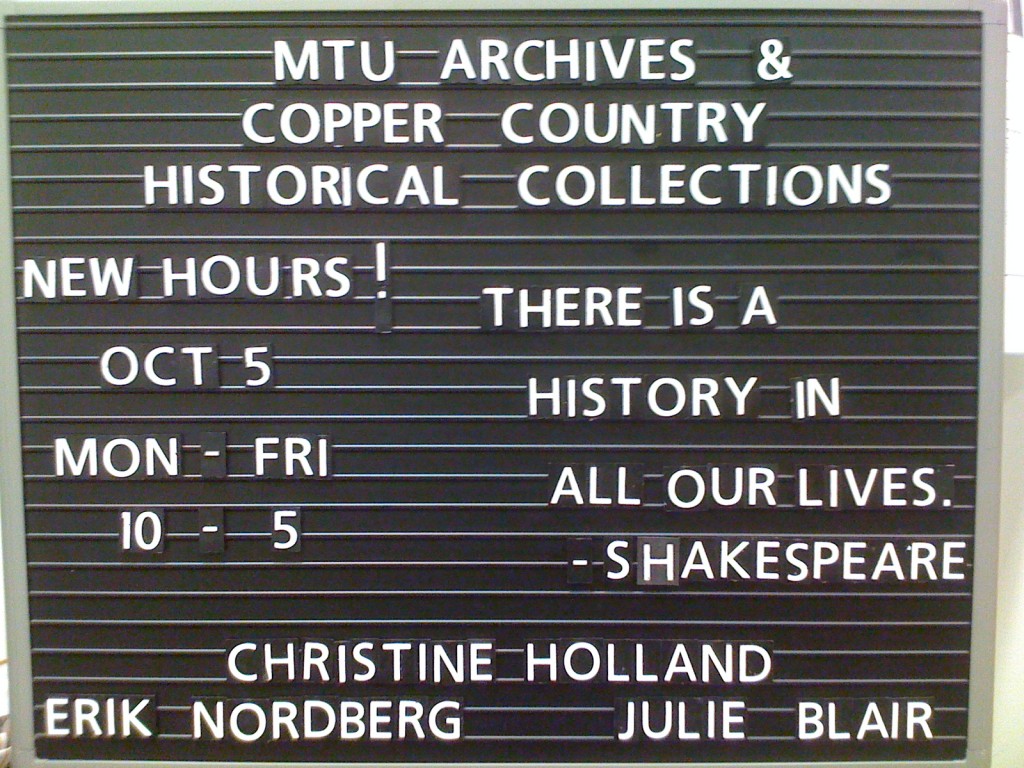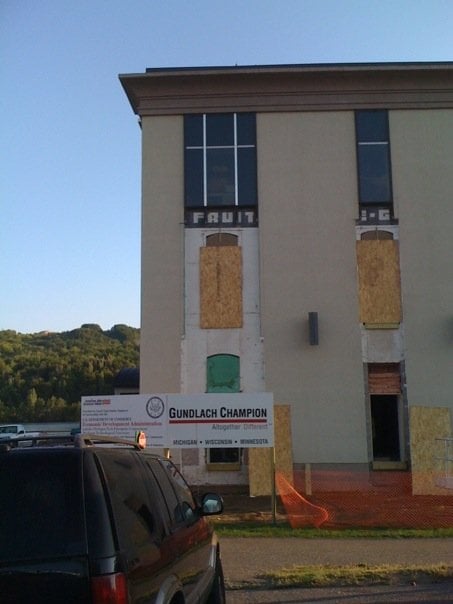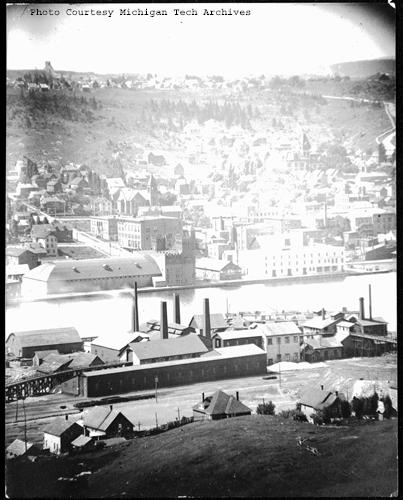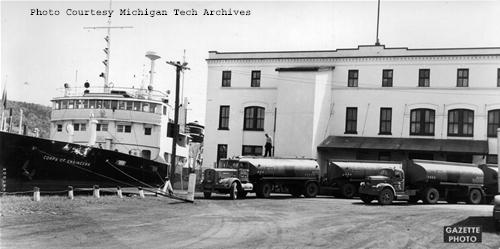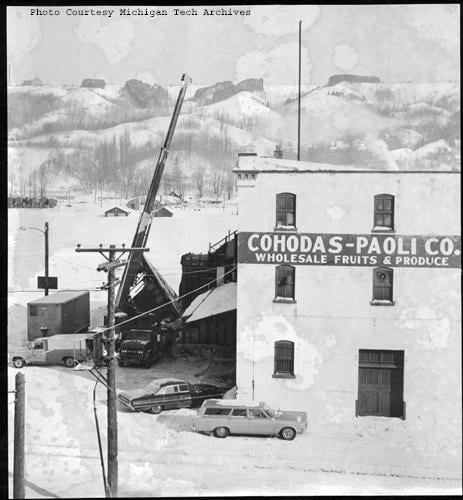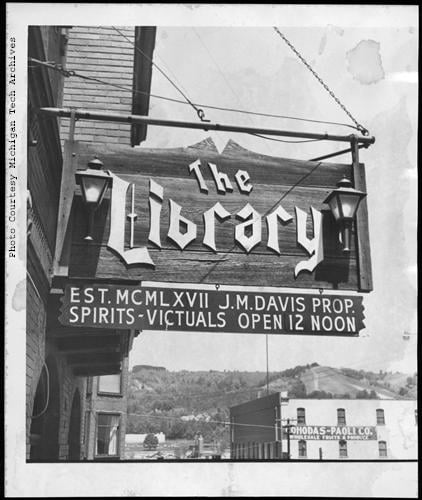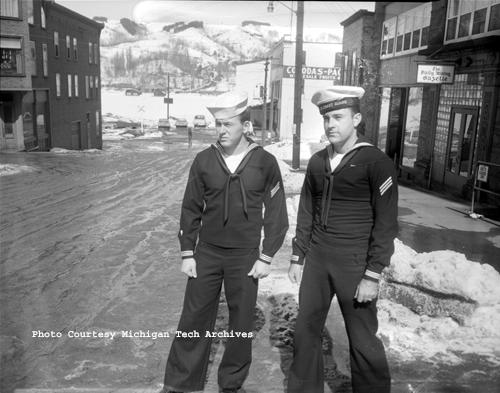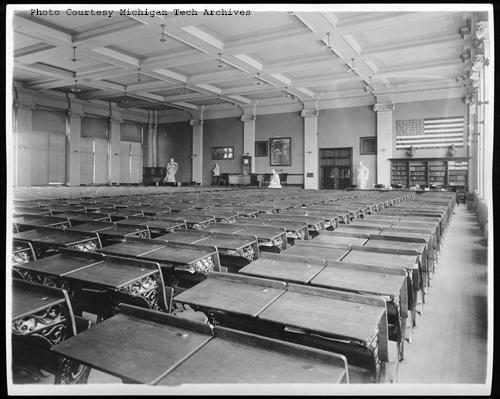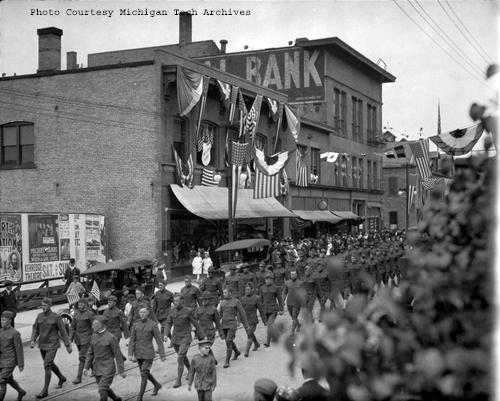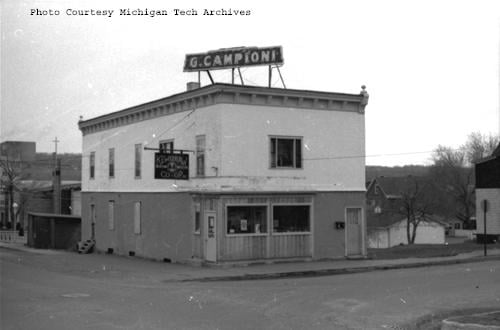Genealogical holdings of the Michigan Tech Archives were highlighted in a feature article in the November 7, 2009 issue of Houghton’s Daily Mining Gazette. Here is the article:
Genealogy resources abound in Copper Country
By Garrett Neese, DMG Writer
HOUGHTON – Every year, thousands of people come to the Copper Country to research their heritage.
Fortunately for them, there are many resources available locally to help them with their quest.
Many of the records for which people are looking may be found in county courthouses. Houghton County’s clerk’s office has vital records dating back more than 150 years: births and deaths since 1867 (indexes starting 1893 and 1911, respectively), marriages since 1855 and naturalization records starting in 1848.
Some records are restricted, said Mary Sivonen, senior accounts processor with the county clerk’s office: Only family members may see birth records, while military discharge records may be seen by that person and a spouse.
Because of space and staffing constraints, Sivonen said people should call ahead and set aside a time to come.
“We limit it to just a couple at a time,” she said. “We don’t allow groups to come up because we only have a limited amount of space. The books are very large.”
Coming in to look at open records is free. There are small fees for services beyond that, including $2 for copies and $10 for any records that need to be typed.
The Michigan Technological University Archives and Copper Country Historical Collections has a wealth of sources, including Upper Peninsula census reports, local newspapers, tax and immigration records, and tract books showing purchases of land from the government.
Assistant archivist Julia Blair didn’t have total visitor numbers, but said hundreds of people come per month to do research.
There are microfilm archives from about 70 local papers, which can include pertinent information such as obituaries. Copies of the Daily Mining Gazette and its predecessor, the Portage Lake Mining Gazette, date back to 1862. There are other papers both major and minor, including three months of 1908 copies of the Hancock newspaper Wage Slave.
Other information includes census records, mine inspector reports of mining accidents, and Calumet & Hecla Mining Co. records, “probably the resource that is most valuable to people who come from outside the area,” Blair said.
The archives have telephone directories from Houghton and Keweenaw counties and Chassell, as well as their forerunner, the Polk directories, which included a list of residents with their job and address (for example, the 1898 Houghton County edition includes Dagenain Frederick, a laborer who lived at 129 Hecla St. in Laurium).
Many people also use Sanborn insurance maps, which shows the layout of streets in the town, as well as the businesses there at that point in time.
“It’s possible to trace a particular family dwelling and see if that home is still there,” she said.
Recently, Blair had a woman call who was interested in what business used to be in a particular building in South Range.
But as with any kind of historical research, Blair said, people should be prepared to put a little time into it.
“We can’t just type in a name, and say ‘Oh, we have this,'” she said.
In the event there’s nothing at the archives, they will also connect them to other resources, Blair said.
“It’s rare that we can’t connect somebody to some records in the past, but it has happened,” she said.
http://www.mininggazette.com/page/content.detail/id/507342.html?nav=5003
